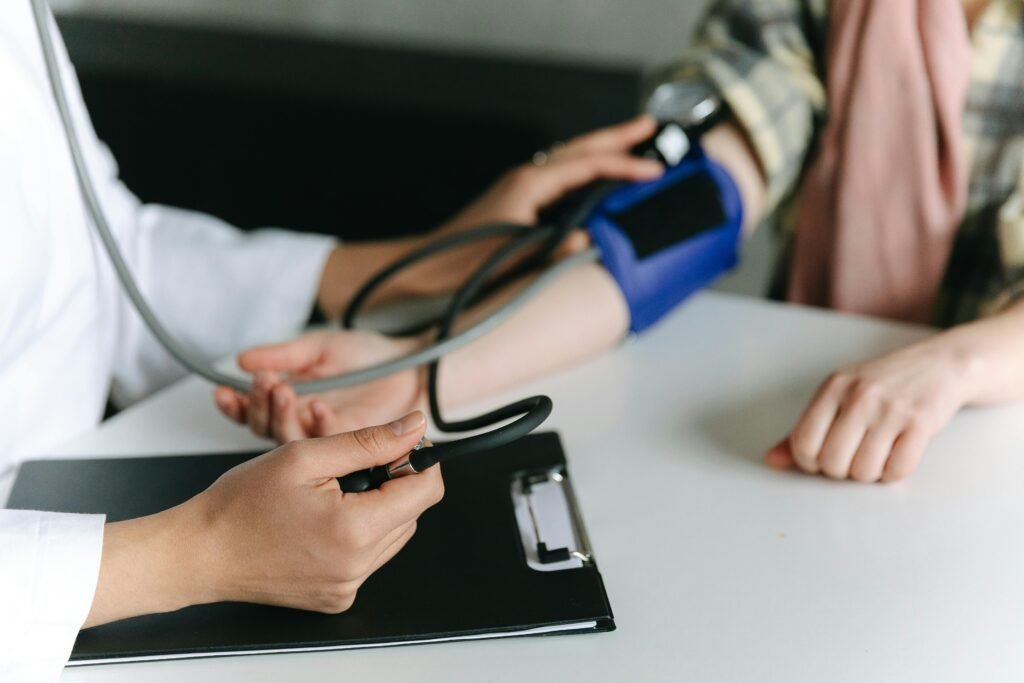Hypertension, commonly known as high blood pressure, is a major health concern affecting millions of people worldwide. One of the significant risk factors for developing hypertension is being overweight. Understanding the connection between overweight and hypertension is crucial for both prevention and management of this potentially life-threatening condition. This blog post delves into the reasons why being overweight causes hypertension and the underlying mechanisms at play.

The Basics of Hypertension
Hypertension occurs when the force of the blood against the artery walls is consistently too high. Blood pressure is measured in millimeters of mercury (mm Hg) and has two numbers: systolic pressure (the pressure in arteries when the heart beats) and diastolic pressure (the pressure in arteries between beats). Normal blood pressure is typically around 120/80 mm Hg. Hypertension is diagnosed when blood pressure readings consistently exceed 130/80 mm Hg.
How Being Overweight Leads to Hypertension
- Increased Blood Volume
When an individual is overweight, their body requires more blood to supply oxygen and nutrients to the increased amount of tissue. This additional volume of blood circulating through the body increases the pressure on the artery walls, leading to higher blood pressure. Essentially, more body mass means more blood is needed to keep tissues nourished, thereby increasing the workload on the heart and blood vessels.
- Insulin Resistance
Overweight and obesity are closely linked to insulin resistance, a condition where the body’s cells do not respond properly to insulin. Insulin resistance can lead to higher levels of insulin in the blood, which in turn can cause the kidneys to retain sodium and water. This retention increases blood volume and, subsequently, blood pressure. Additionally, high insulin levels can stimulate the sympathetic nervous system, which controls blood vessel constriction, further raising blood pressure.
- Hormonal Changes
Fat cells, particularly those around the abdomen, are not just passive storage units; they actively secrete hormones and other substances that can influence blood pressure. For instance, adipose (fat) tissue produces angiotensinogen, a precursor to angiotensin II, a powerful vasoconstrictor that narrows blood vessels and increases blood pressure. Overweight individuals often have elevated levels of these substances, contributing to hypertension.
- Sympathetic Nervous System Activation
Excess weight can lead to overactivity of the sympathetic nervous system, which plays a key role in regulating blood pressure by controlling the constriction and relaxation of blood vessels. When the sympathetic nervous system is overactive, it can cause blood vessels to remain constricted, increasing resistance in the arteries and thus raising blood pressure.
- Obstructive Sleep Apnea
Many overweight individuals suffer from obstructive sleep apnea (OSA), a condition characterized by repeated interruptions in breathing during sleep. OSA can lead to spikes in blood pressure during the night and sustained high blood pressure during the day. The repeated drops in oxygen levels during these interruptions stimulate the release of stress hormones, which increase heart rate and blood pressure.
- Kidney Function Impairment
The kidneys play a crucial role in regulating blood pressure by controlling fluid balance and the release of certain hormones. Excess body fat can cause physical changes in the kidneys, such as increased pressure within the kidney’s filtration units (glomeruli). This can impair their ability to regulate fluid and electrolyte balance, contributing to increased blood volume and hypertension.

Managing Weight to Control Hypertension
Given the strong link between overweight and hypertension, weight management is a critical component in preventing and controlling high blood pressure. Here are some strategies:
- Healthy Diet: Adopting a balanced diet rich in fruits, vegetables, whole grains, and lean proteins can help manage weight and lower blood pressure. Reducing sodium intake is particularly beneficial for blood pressure control.
- Regular Physical Activity: Engaging in regular physical activity helps burn calories, reduce fat mass, and improve cardiovascular health. Aim for at least 150 minutes of moderate-intensity exercise per week.
- Monitor Blood Pressure: Regular monitoring of blood pressure can help detect hypertension early and manage it effectively.
- Medical Support: Seeking support from healthcare professionals, including dietitians, fitness trainers, and doctors, can provide personalized strategies for weight management and hypertension control.
- Stress Management: Chronic stress can contribute to both weight gain and hypertension. Techniques such as mindfulness, meditation, and yoga can help manage stress levels.
You can read also- https://fatburnfaster2x.com/how-to-reduce-over-weight/
Conclusion
The relationship between being overweight and hypertension is complex and multifaceted. Increased blood volume, insulin resistance, hormonal changes, sympathetic nervous system activation, obstructive sleep apnea, and impaired kidney function all play a role in elevating blood pressure in overweight individuals. Addressing weight through a combination of diet, exercise, and medical support is essential for preventing and managing hypertension, ultimately leading to better overall health and quality of life.




Pingback: Why Overweight is Dangerous – Fat Burn Faster 2x